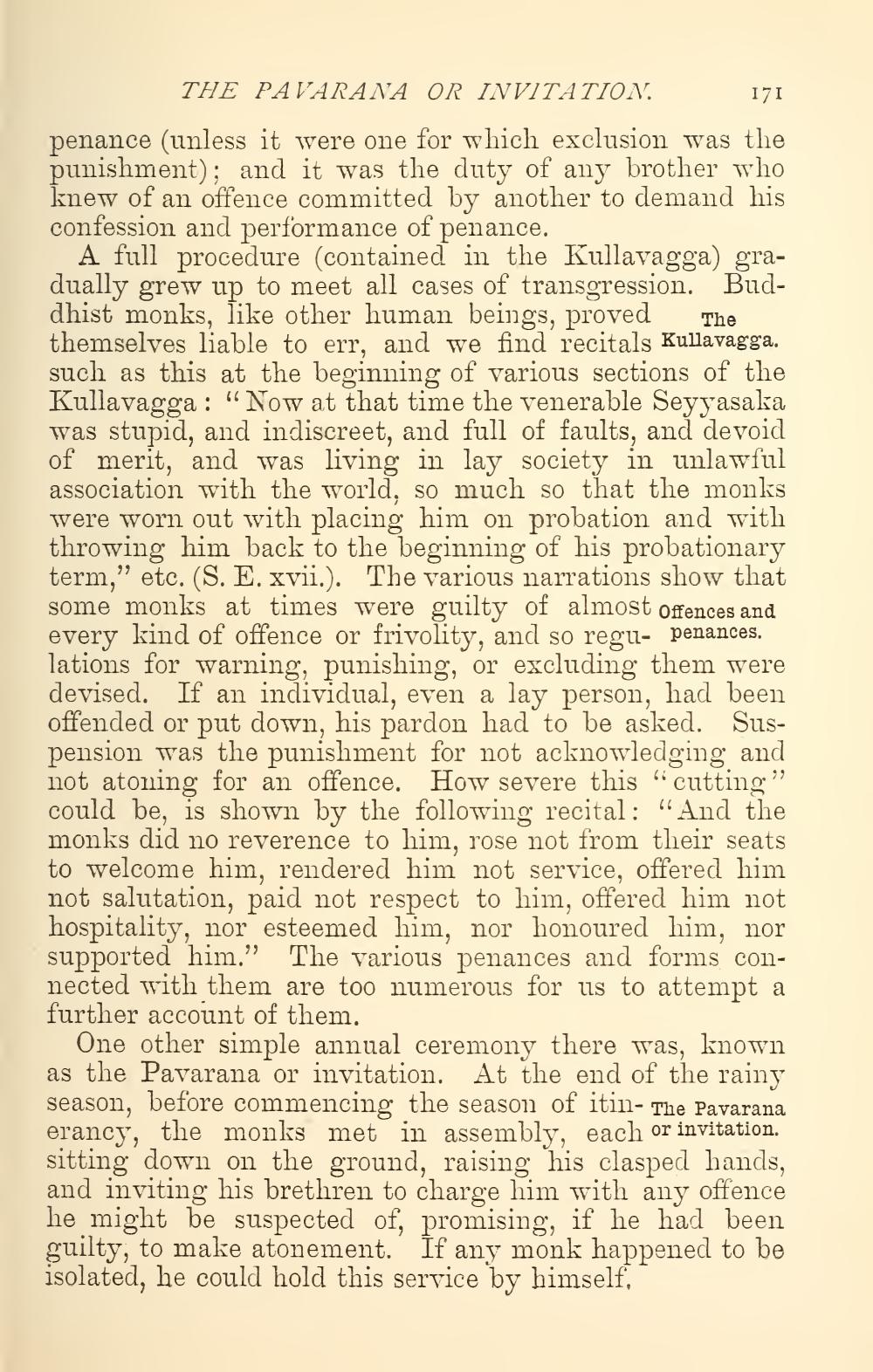________________
THE PAVARANA OR INVITATION.
171
penance (unless it were one for which exclusion was the punishment); and it was the duty of any brother who knew of an offence committed by another to demand his confession and performance of penance.
A full procedure (contained in the Kullavagga) gradually grew up to meet all cases of transgression. Buddhist monks, like other human beings, proved The themselves liable to err, and we find recitals Kullavagga. such as this at the beginning of various sections of the Kullavagga : "Now at that time the venerable Seyyasaka was stupid, and indiscreet, and full of faults, and devoid of merit, and was living in lay society in unlawful association with the world, so much so that the monks were worn out with placing him on probation and with throwing him back to the beginning of his probationary term," etc. (S. E. xvii.). The various narrations show that some monks at times were guilty of almost offences and every kind of offence or frivolity, and so regu- penances. lations for warning, punishing, or excluding them were devised. If an individual, even a lay person, had been offended or put down, his pardon had to be asked. Suspension was the punishment for not acknowledging and not atoning for an offence. How severe this “cutting" could be, is shown by the following recital: “And the monks did no reverence to him, rose not from their seats to welcome him, rendered him not service, offered him not salutation, paid not respect to him, offered him not hospitality, nor esteemed him, nor honoured him, nor supported him.” The various penances and forms connected with them are too numerous for us to attempt a further account of them.
One other simple annual ceremony there was, known as the Pavarana or invitation. At the end of the rainy season, before commencing the season of itin- The Pavarana erancy, the monks met in assembly, each or invitation. sitting down on the ground, raising his clasped hands, and inviting his brethren to charge him with any offence he might be suspected of, promising, if he had been guilty, to make atonement. If any monk happened to be isolated, he could hold this service by himself,




